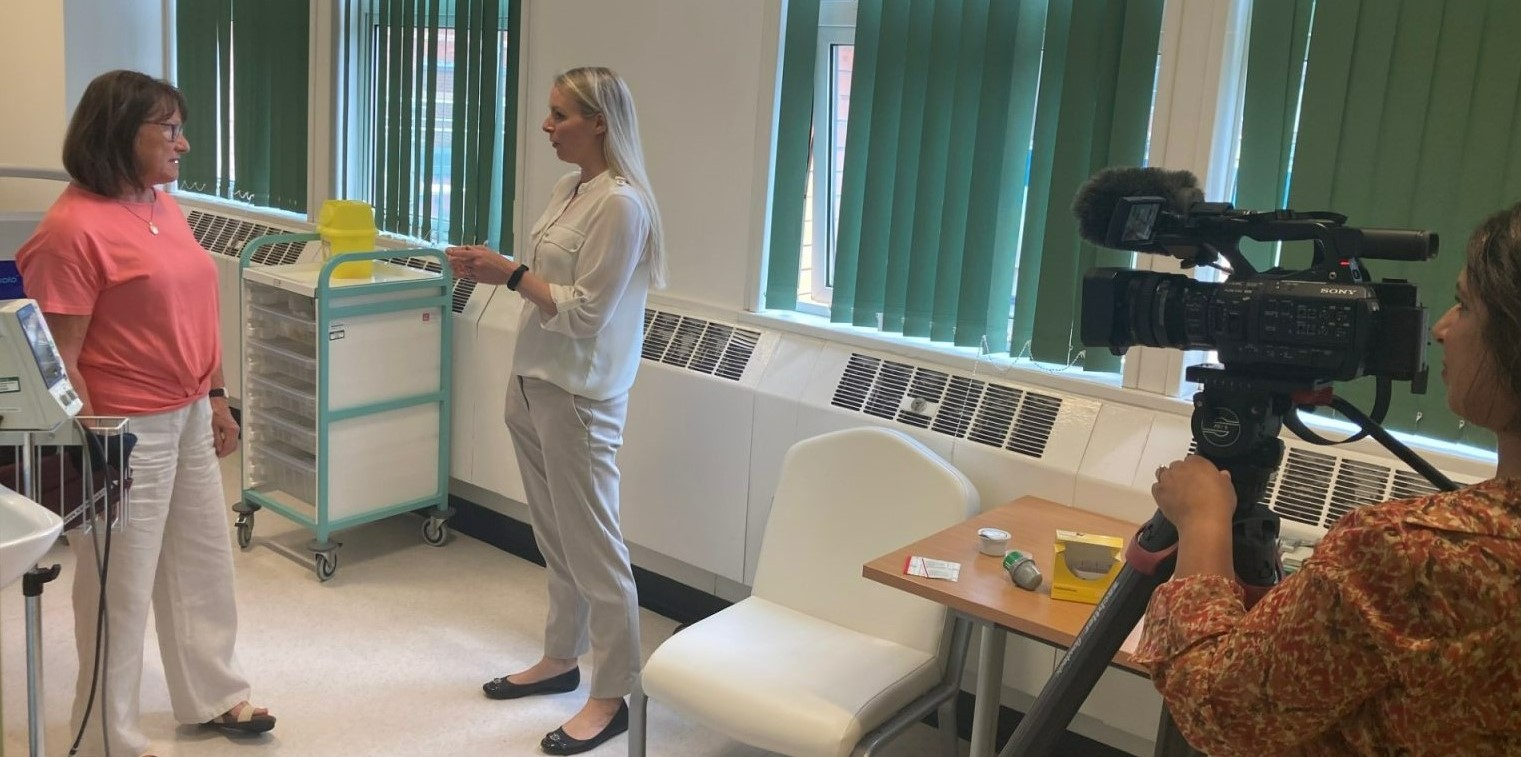
Experts from the University of Leicester and Loughborough University launched an investigation in 2018 to investigate simple solutions to reducing sitting time in the office.
This month, researchers and participants talked to ITV news about the impact of prolonged sitting and inactivity on a person’s life expectancy, and how breaking these cycles by standing and being more active can improve the prognosis for people living with type 2 diabetes and heart disease.
Lisa Demarco is a Family Information Manager at Leicester City Council and participated in the Smart Work and Life study. Between 2018 and February 2020 participants were provided with height adjustable standing workstations and monitored using accelerometers and regular blood tests to see the impact.
Lisa said: “I was approached because I sat a lot for my job.
“When I had the standing station installed it was quite embarrassing- everyone staring like ‘what you are doing?’ My cup of tea went flying a couple of times…. but you get used to that and stop caring what other people think.”
Having over come the teething problems she soon began to see the benefits.
“Standing make such a difference. I don’t get pins and needles any more. It makes me think better.”
She describes the study as “transformative” and has been encouraging colleagues to adopt the approach adding: “it enables you to operate differently and helps alleviate stress.”
Dr Charlotte Edwardson, an Associate Professor in Physical Activity, Sedentary Behavior and Health, leads the Smart Work and Life programme; a selection of resources and guidance to help people break up prolonged periods of sitting and develop healthier practices at work. The study aims to spread awareness on how relatively small changes can make a big difference.
“People are aware of the benefits of general exercise but are unaware of the difference simply standing can make,” said Dr Edwardson.
Following the work of studies like Smart Work and Life, desk converters are becoming far more common.
The findings of the study showed the significant benefits of the new configuration;
“We saw a wide range of health and wellbeing benefits, not just muscular skeletal. We also saw significant improvements to mental health and processing ability.”
The ITV news segment also features the Response study, which tested the effects of regular exercise on glucose levels on people living with Type 2 Diabetes again by using accelerometers and regular glucose screening over a four-week period.

Jennifer Stewart, a participant in the study, was diagnosed as prediabetic nine years ago, and found the process incredibly helpful.
Ms Stewart said: “I came away with a much better understanding of the condition and I made some changes. My diet is pretty good but the glucose screening really opened my eyes to how it could be better”.
Ms Stewart said she has tried to make more time for regular exercise in her day-to-day life adding: “Even a ten minute walk a day can help tremendously with type two diabetes and other conditions.”
Dr Joe Henson, Research Associate for the Leicester BRC Lifestyle Theme, added; “Prolonged sitting time is associated with negative health effects and modern lifestyles are very driven by sedentary behavior.
However, Dr Henson also stressed that this could be changed very easily and that even simply standing up and stretching or doing push-ups against the wall at home could make a significant difference.
He added: “Starting small by breaking up sedentary periods can go a long way to improving general health and breaking up glucose levels.”
Find out more about Smart Work and Life here